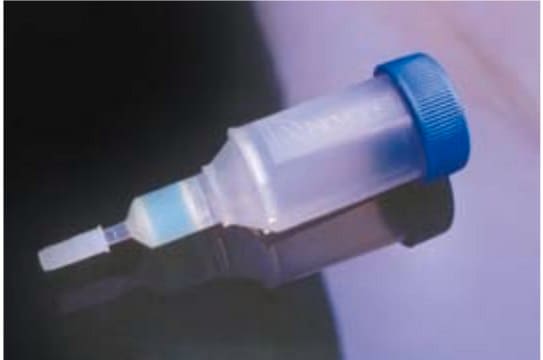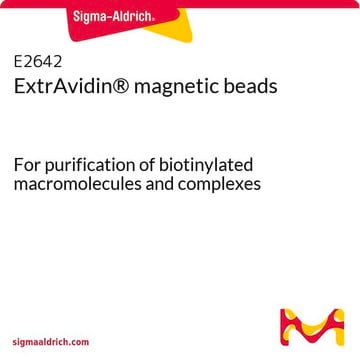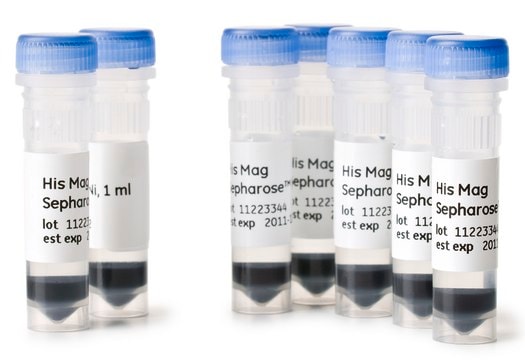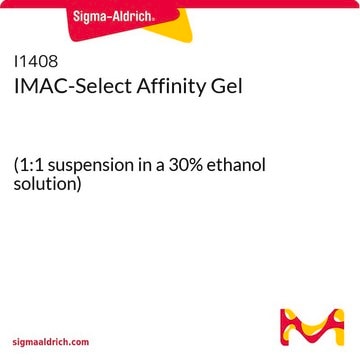H9914
HIS-Select® Nickel Magnetic Agarose Beads
Sinónimos:
nickel charged magnetic beaded agarose
About This Item
Productos recomendados
conjugate
magnetic beads
Quality Level
form
suspension
shelf life
2 yr (Unopened product)
matrix
6% beaded magnetic agarose
capacity
≥15 mg/mL binding capacity
storage temp.
2-8°C
General description
Application
Physical form
Legal Information
Related product
signalword
Danger
Hazard Classifications
Aquatic Chronic 3 - Carc. 1B - Flam. Liq. 3 - Repr. 1B - Skin Sens. 1 - STOT RE 2
target_organs
Respiratory Tract
Storage Class
3 - Flammable liquids
wgk_germany
WGK 3
flash_point_f
86.0 °F
flash_point_c
30 °C
Certificados de análisis (COA)
Busque Certificados de análisis (COA) introduciendo el número de lote del producto. Los números de lote se encuentran en la etiqueta del producto después de las palabras «Lot» o «Batch»
¿Ya tiene este producto?
Encuentre la documentación para los productos que ha comprado recientemente en la Biblioteca de documentos.
Los clientes también vieron
Contenido relacionado
Técnicas, reactivos y protocolos de purificación de proteínas para purificar proteínas recombinantes utilizando métodos como la cromatografía de intercambio iónico, de exclusión por tamaño y de afinidad.
Protein purification techniques, reagents, and protocols for purifying recombinant proteins using methods including, ion-exchange, size-exclusion, and protein affinity chromatography.
Protein purification techniques, reagents, and protocols for purifying recombinant proteins using methods including, ion-exchange, size-exclusion, and protein affinity chromatography.
Técnicas, reactivos y protocolos de purificación de proteínas para purificar proteínas recombinantes utilizando métodos como la cromatografía de intercambio iónico, de exclusión por tamaño y de afinidad.
Nuestro equipo de científicos tiene experiencia en todas las áreas de investigación: Ciencias de la vida, Ciencia de los materiales, Síntesis química, Cromatografía, Analítica y muchas otras.
Póngase en contacto con el Servicio técnico












